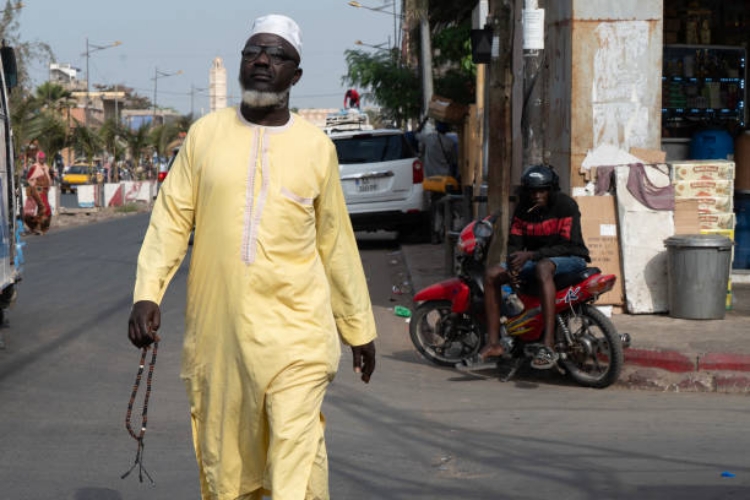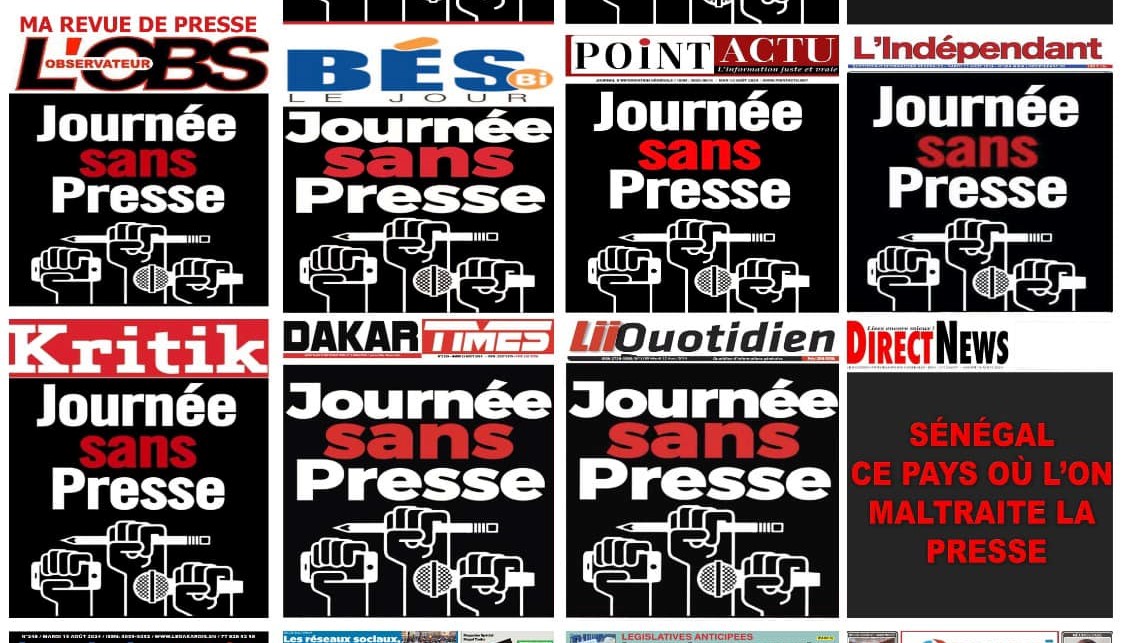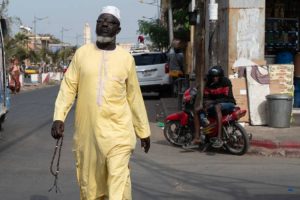Gambiaj.com – (DAKAR, Senegal) – This Tuesday, August 13, is a “Day Without Information” in Senegal, a dramatic and bold protest by the media industry leaders against what they describe as growing threats to press freedom under Prime Minister Ousmane Sonko’s administration.
This unprecedented move, spearheaded by the Council of Broadcasters and Publishers of Senegal (CDEPS), effectively silenced the nation’s newspapers, radio stations, television programs, and online news platforms for the day.
The call for this blackout was made on August 12 by Mamadou Ibra Kane, the president of CDEPS, who emphasized the gravity of the situation. “The newspapers will not appear. There will be no radio and television programs. News sites owned by press companies will not be broadcast,” he announced. This collective action underscores the deep concerns within the media sector, which leaders describe as enduring “one of the darkest phases in its history.”
The tensions between the media and the government have been escalating since the new administration took office in April 2024. Media professionals are increasingly worried about their freedom of expression, citing actions by the government that they believe are intended to control and domesticate the press. Among the grievances listed by CDEPS are the blocking of bank accounts of media companies for alleged non-payment of taxes, the seizure of production equipment, the unilateral breach of advertising contracts, and the freezing of payments owed to media outlets.
Prime Minister Ousmane Sonko, who has been critical of the media, accused some media owners of engaging in financial misconduct, particularly regarding unpaid social contributions. He has also criticized newspapers for publishing what he perceives as unverified information under the guise of press freedom. His remarks have been seen by many within the industry as a direct threat to their work and independence.
The situation has drawn international attention, with Reporters Without Borders (RSF) noting Senegal’s significant drop in the World Press Freedom Ranking—from 49th place in 2021 to 94th in 2024. The NGO has urged the new government to safeguard the rights of journalists, following a worrying trend of assaults, arrests, and media suspensions under the previous administration.
Economic challenges have long plagued Senegal’s media sector, with many journalists and media outlets operating under precarious conditions. These difficulties recently claimed two of the country’s most popular sports newspapers, Stades and Sunu Lamb, which ceased publication in July after more than two decades in operation.
As Senegal grapples with these challenges, the media’s protest serves as a stark reminder of the fragile state of press freedom in the country. Whether the government will address these concerns or continue on its current path remains to be seen, but the stakes for Senegal’s democracy have rarely been higher.










